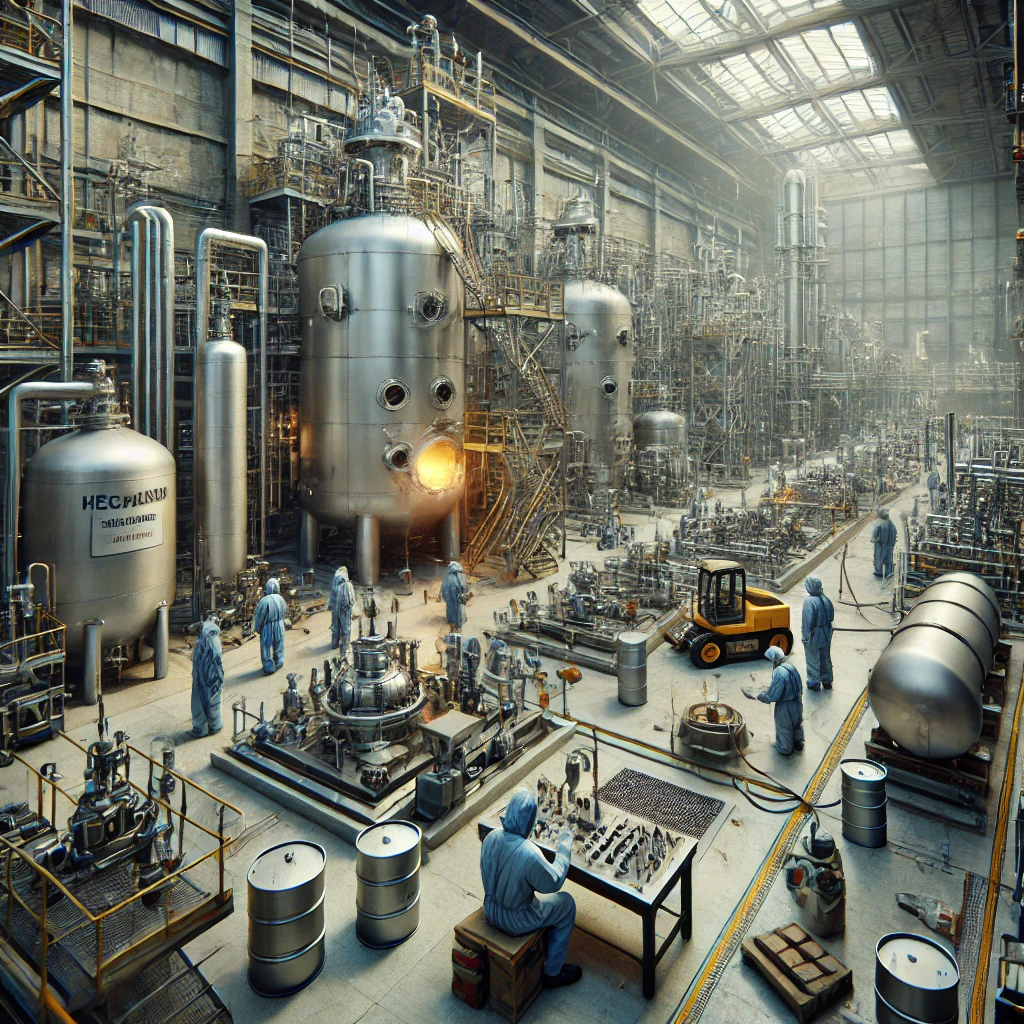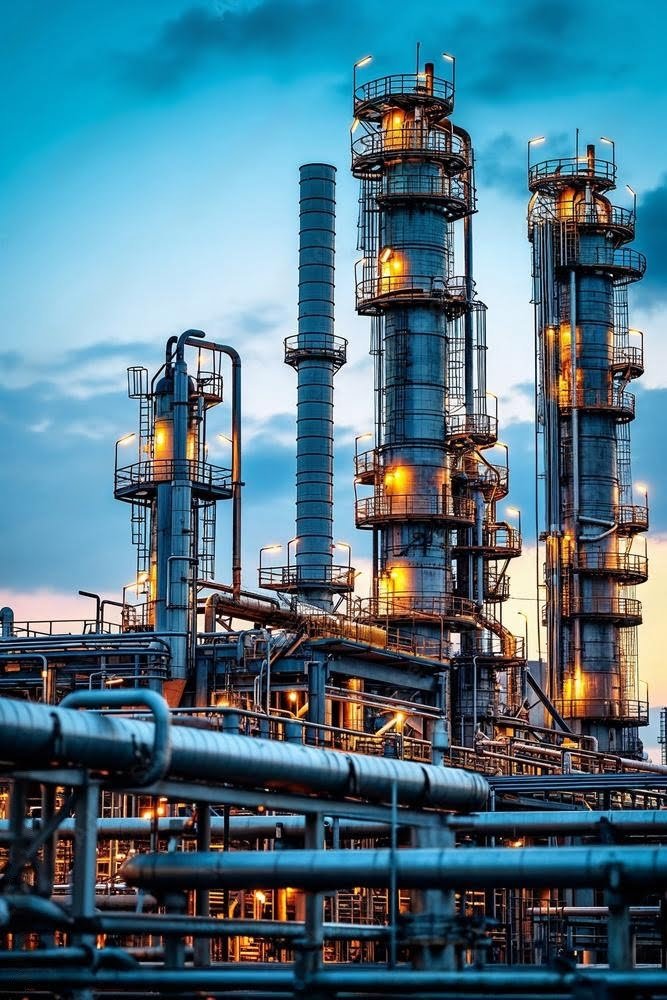Sustainable Practices in Chemical Equipment Manufacturing
Sustainability has become a pivotal focus across industries, including chemical equipment manufacturing. As concerns about environmental impact and resource conservation grow, manufacturers are increasingly adopting sustainable practices to minimize their carbon footprint and promote eco-friendly operations. Here’s how sustainable manufacturing practices are integrated into the production of chemical equipment:

Material Selection
- Choosing Eco-Friendly Materials: Manufacturers prioritize materials with minimal environmental impact, such as recycled metals and alloys sourced from sustainable suppliers. Materials like stainless steel (SS304L, SS316L) and nickel alloys (Inconel, Hastelloy) are selected for their durability and recyclability.
- Energy-Efficient Materials: Opting for materials that require less energy to produce and process helps reduce overall energy consumption during manufacturing.
Energy Efficiency
- Optimized Manufacturing Processes: Implementing energy-efficient technologies and practices, such as LED lighting, energy-efficient machinery, and automated systems, reduces energy consumption and lowers greenhouse gas emissions.
- Renewable Energy Sources: Transitioning to renewable energy sources, such as solar and wind power, for manufacturing operations further reduces the carbon footprint associated with production.
Waste Minimization and Recycling
- Waste Reduction Strategies: Implementing lean manufacturing principles to minimize waste generation and improve material efficiency. This includes reducing scrap materials and optimizing material usage during fabrication.
- Recycling Programs: Establishing recycling programs for scrap metal, packaging materials, and other waste streams generated during manufacturing processes. Recycling helps conserve natural resources and reduces landfill waste.
Water Conservation
- Efficient Water Management: Implementing water-saving technologies, such as closed-loop water systems and water reuse/recycling processes, to minimize water consumption during manufacturing.
- Water Treatment: Treating wastewater to remove contaminants before discharge to minimize environmental impact and comply with regulatory standards.
Eco-Friendly Coatings and Finishes
- Low-VOC Coatings: Choosing coatings and finishes with low volatile organic compound (VOC) content to reduce air pollution and improve indoor air quality.
- Durable Finishes: Selecting durable coatings that require less frequent reapplication or maintenance, thereby reducing material usage and waste over the equipment’s lifecycle.
Lifecycle Assessment and Product Design
- Design for Durability: Designing equipment for longevity and ease of maintenance to extend its operational lifespan and reduce the frequency of replacements.
- Lifecycle Analysis: Conducting lifecycle assessments to evaluate the environmental impact of products from raw material extraction to end-of-life disposal. This informs decisions on material selection and manufacturing processes.
Compliance and Certification
- Environmental Compliance: Adhering to environmental regulations and standards, such as ISO 14001, to ensure that manufacturing processes meet legal requirements and environmental performance criteria.
- Certifications: Obtaining certifications, such as LEED (Leadership in Energy and Environmental Design) or EcoLabel certifications, to demonstrate commitment to sustainable practices and enhance credibility in the market.
Learn More
For more information on our sustainable practices and equipment offerings, visit our pages on Reactors and Autoclaves, Process Vessel and Tanks, Hydrogenators, Pilot Plant Systems, Distillation Columns, Heat Exchangers and Condensers, and Large Size Pipe and Pipe Fittings.
By integrating these practices, we ensure that our manufacturing processes are eco-friendly and energy-efficient, aligning with our commitment to sustainability and environmental responsibility. Discover how Special Metal Industries is leading the way in sustainable chemical equipment manufacturing.
Check out this Embracing Sustainability: The Eco-Friendly Applications of Exotic Metals
Check out this: Embracing Sustainability: The Eco-Friendly Applications of Exotic Metals
Check out this: The Importance of Material Selection in Chemical Equipment Manufacturing
Check out this: Pioneering the Future of Mining: Extracting Exotic Metals Sustainably
Check out this: The Role of High-Quality Reactors in Pharmaceutical Manufacturing
Check out this: The Future of Exotic Metals in Emerging Applications and Technological Advancements
Check out this: Ensuring Reliability: The Critical Role of Quality Assurance in Large Size Pipe and Pipe Fittings
Check out this: Working with Exotic Metals: Fabrication Techniques and Safety Tips

